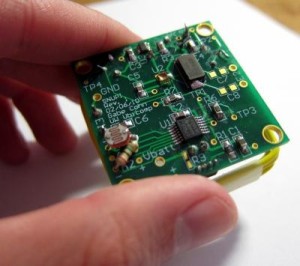Sep 21 2010
Researchers from Georgia Institute of Technology and University of Washington have created a device called Sensor Nodes Powerline Infrastructure (SNUPI) that utilizes home electrical wiring, such as basic copper wires, as a mammoth antenna for both receiving and transmitting wireless signals at a fixed frequency level. If the device is placed in the vicinity of an electrical wiring, (inside 10-15 feet) it will utilize the antenna to transmit the data to the base station.
 Sensor Nodes Powerline Infrastructure (SNUPI)
Sensor Nodes Powerline Infrastructure (SNUPI)
According to Shwetak Patel, Principal investigator of this project, and Assistant Professor of Electrical Engineering and Computer Science, SNUPI uses a superior technology when measured against the other conventional sensing devices. The main focus was on reducing the power consumed by the wireless appliances. Normally high power consuming radio waves are used to transmit data to the bay station, and due to this their lifetime is just a few months. When compared to the conventional sensors that use 99% radio waves, SNUPI uses less than 1%, and also transmits more powerful signals.
When SNUPI was tested on a 3000 Square foot home by Patel and colleague Gabe Cohn, it was discovered that only 5% was outside the range of SNUPI, compared to the 23% of the traditional sensors. Additionally they stumbled upon the fact that SNUPI was able to transmit signals even through walls with ease. Patel remarked that the upshot of this system could be reducing ecowaste, as batteries need not be replaced, as the batteries are long-lasting (maybe for decades) and encased on the sensor.
Possible applications for the sensors are medical monitoring equipments, where critical health care data is transmitted to the bay station.